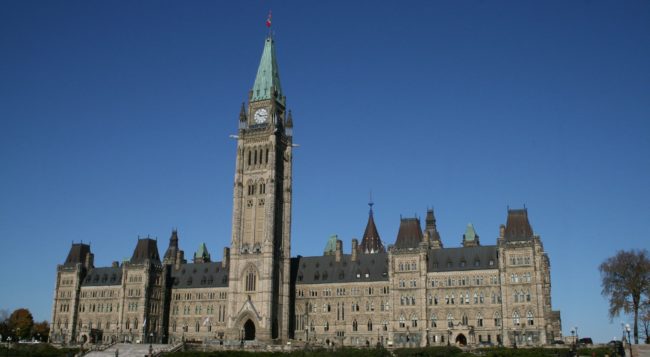The federal government’s new climate plan, announced today, calls for a $15/tonne annual increase in the carbon price from 2023 through 2030. This is a bold, brave, and wise move that will set Canada on the path to decarbonization. It sends a clear message to investors around the globe that Canada is serious about climate action.
As we showed in our recent report, pricing should be the backbone of any climate plan. Clean Prosperity modelling suggests the price schedule announced today will allow us to exceed Canada’s Paris Agreement targets and get more than halfway to net zero.
This was not an easy choice, but it’s the right choice. The government is wisely adopting a low-cost policy option that is good for the economy.
Contrary to what critics argue, carbon pricing is the most cost-effective and affordable option for reducing Canada’s emissions. It is the one climate policy that puts money back in Canadians’ pockets. As pricing rises, the annual rebates will rise too—in 2030 a family of four will receive $2,018 in Ontario, $3,829 in Saskatchewan, and $3,242 in Alberta. These are the government’s projections; our calculations suggest that the rebates are likely to be even larger.
Switch to direct payments: The government’s new plan also includes switching the carbon rebate from a refundable income-tax credit to a direct payment. This is a game-changer. Direct payments to households will increase public awareness of the rebate. They will help Canadians understand that carbon pricing is affordable, and that it can help them invest in reducing their carbon footprints.
Polling by Leger and Clean Prosperity shows that the public supports carbon pricing when they understand how it works. In a recent poll of the key 905 swing region, over two-thirds of respondents said they would support carbon pricing if the money was returned to households.
Complimentary policy: Carbon pricing alone cannot fully decarbonize our economy. We’re going to need smart complementary investments and regulations, and the government has included some of those in today’s announcement.
I’m particularly heartened to see the commitment to accelerate building retrofits, further regulate methane emissions, address agricultural emissions, and invest in strategic interconnections within the country’s electrical grid.
More action needed on carbon removal: The new climate plan still has room for improvements. I’d like to see more focus on removing carbon from the atmosphere using technologies like direct air capture, rather than nature-based solutions that don’t permanently sequester carbon.
Plan can get us to Paris: We believe the new plan will reduce emissions even further than has been suggested in the government’s modelling. Our recent report showed that continuing to increase the carbon price by $15/tonne per year through 2030 would reduce annual emissions by an additional 159 Mt, far surpassing the 77 Mt gap to Canada’s Paris Agreement targets. That’s the projected impact of carbon pricing alone—without considering the impacts of other climate policies.
Carbon pricing unlocks clean technologies: Models also underestimate one of the biggest benefits of carbon pricing—its ability to unlock cleantech solutions. At just $60/tonne, for example, carbon pricing makes it profitable to capture carbon released in the production of hydrogen, a carbon-neutral fuel that could deliver a big boost to the energy sector in Western Canada. As the price of carbon continues to rise, it will unlock even more critical tools, like negative emissions technologies that will help drive decarbonization efforts.
Net zero matters most: Of course, what matters most is achieving our goal of net zero emissions by 2050, in a way that is consistent with climate science. That job is certainly not done and will still require more policy. But today’s announcement is an encouraging step in the right direction. By leading with carbon pricing, this plan promises meaningful progress on the road to net zero.
Contact: media@cleanprosperity.ca




